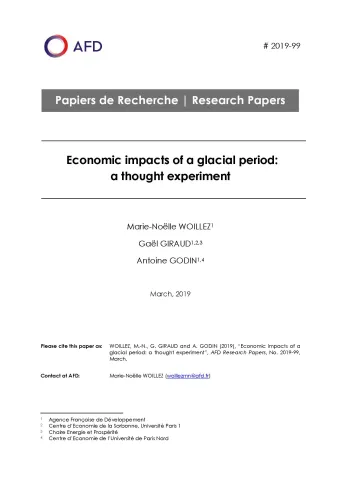Share the page
Economic impacts of a glacial period: a thought experiment
Published on

Increased knowledge about anthropogenic climate change has raised growing concerns about its potential catastrophic impacts on both ecosystems and human societies. Yet, several studies on damages induced on the economy by unmitigated global warming have proposed a much less worrying image of the future, with only a few points decrease in the world GDP per capita by the end of the century, even for high levels of warming. Here we consider two different empirically estimated damage functions, linking GDP growth or GDP level to temperature, and apply them to a global cooling of -4°C in 2100, corresponding to a return to glacial conditions. We show that the alleged impact on average GDP per capita is comprised between -1.8% and +36%. These results are then compared to the new environmental conditions faced by humanity, taking the last glacial maximum as a reference. The modeled impacts on the world GDP appear clearly unrealistic given the magnitude of climate and environmental changes recorded for that period. We therefore conclude that, if such damage functions cannot reasonably be trusted for a cooling outside their calibration range, nor should they be considered as plausible for the future climate projection under massive greenhouse gas emissions.
Useful Information
-
Authors
-
Coordinators
-
Edition
-
99
-
Number of pages
-
14
-
ISSN
-
2492 - 2846
-
Collection
-
Research Papers
